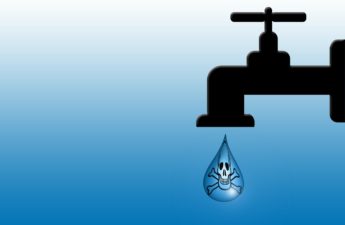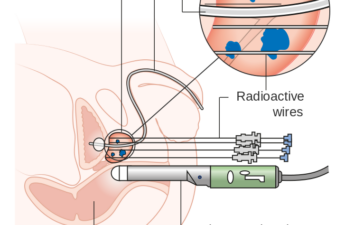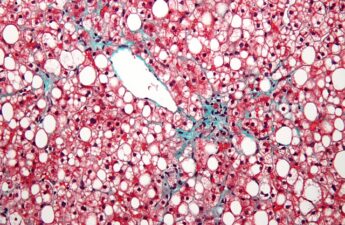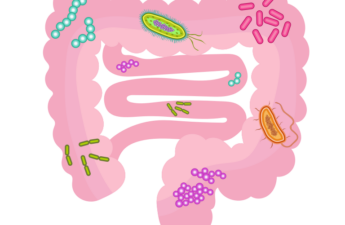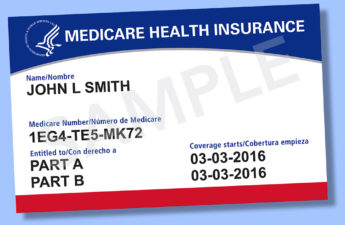State health-officials advise people not to eat Fratelli Beretta Antipasto Gran Beretta purchased from Costco
The Cost of Freeing Drinking Water from ‘Forever Chemicals’
In proposing the limits, EPA officials said that they had leveraged the latest science to protect the public from PFAS pollution. Environmental groups welcomed the move as long overdue. But the standard has drawn widespread criticism from the water utility industry and some scientists who say that in many places, small drops in PFAS water levels will matter little for exposure or health.
Radiation therapy takes advantage of cancer’s poor DNA repair abilities – an oncologist and physicist explain how
Nearly half of all cancer patients undergo radiation therapy as part of their care. Ionizing radiation, or the emission of high-energy waves or particles, works as a therapy by damaging a cancer cell’s DNA. It’s an effective tool for killing cancer cells because they are generally much less adept at DNA repair compared to healthy cells. Damaging specific parts of DNA prevents cancer cells from reproducing, effectively killing them.
‘Shell game’: When private equity comes to town, hospitals can see cutbacks, closures
But state laws can change the trajectory of the story.
What happens to your liver when you quit alcohol
Most people who regularly drink more than the recommended limit of 14 units of alcohol per week (about six pints of normal strength beer [4% ABV] or about six average [175ml] glasses of wine [14% ABV]) will have a fatty liver. Long-term and heavy alcohol use increases the risk of developing scarring and cirrhosis.
Is economic growth good for our health?
Given how wealth contributes to health on the personal, individual level, the case for economic growth might seem intuitive. However the picture gets murkier when looking at income per capita, where people both rich and poor depend upon a fluctuating economy.
Reduce Radon for a Safer Home –
Radon is a naturally occurring radioactive gas. We can’t see it, taste it, or smell it, but it is the leading cause of lung cancer among nonsmokers in the United States. Radon is responsible for about 21,000 deaths in the United States each year.
Your body already has a built-in weight loss system that works like Wegovy, Ozempic and Mounjaro – food and your gut microbiome
Specialized bacteria in your lower gut take the components of food you can’t digest like fiber and polyphenols – the elements of plants that are removed in many processed foods – and transforms them into molecules that stimulate hormones to control your appetite and metabolism.
Resources and emergency shelters available statewide to keep people safe and warm during dangerously cold winter weather
Cold weather can be very dangerous if you are not prepared, particularly for people without homes, the elderly, and those with medical conditions. Health risks include hypothermia, frostbite, falls, vehicle accidents, and carbon monoxide poisoning from improper indoor use of fires or generators. Winter storms can make these problems worse by causing power outages and property damage.
There’s a new pill for postpartum depression, but many at-risk women face hurdles
Suicide and overdoses are among the leading causes of maternal death in the U.S.
As Zepbound dominates headlines as a new obesity-fighting drug, a nutritionist warns that weight loss shouldn’t be the only goal
Weight loss medications are intended to be used in conjunction with lifestyle changes, such as exercise and a healthy diet. But too often, people view them as a silver bullet for weight loss. And the high price tag and variable insurance coverage for these popular weight loss drugs create a barrier for many people.
GET READY FOR WINTER WEATHER, INCLUDING POWER OUTAGES AND ROAD CLOSURES
We’re expecting high winds and gusts starting in the early morning on Tuesday, January 9 and continuing through the day, which could take down power lines and cause outages. This weekend, January 12-14, light snow might cover roads and disrupt travel.
Older Americans Say They Feel Trapped in Medicare Advantage Plans.
Medicare pays private insurers a fixed amount per Medicare Advantage enrollee and in many cases also pays out bonuses, which the insurers can use to provide supplemental benefits. Those extra benefits work as an incentive to get people to join the plan but that the plans then restrict the access to so many services and coverage for the bigger stuff.”
Viewpoint: Restricting Obese Women From IVF Is Discriminatory
Fertility clinics bar women with obesity from their services, despite the lack of medical evidence for doing so.
Cardio or weights first? A kinesiologist explains how to optimize the order of your exercise routine
When you enter the gym, which way should you head first? Toward the treadmills and spin studio to get your sweat on with a cardio session? Or toward the free weights and strength-training machines to do some resistance training? The answer to this question is … it depends.

